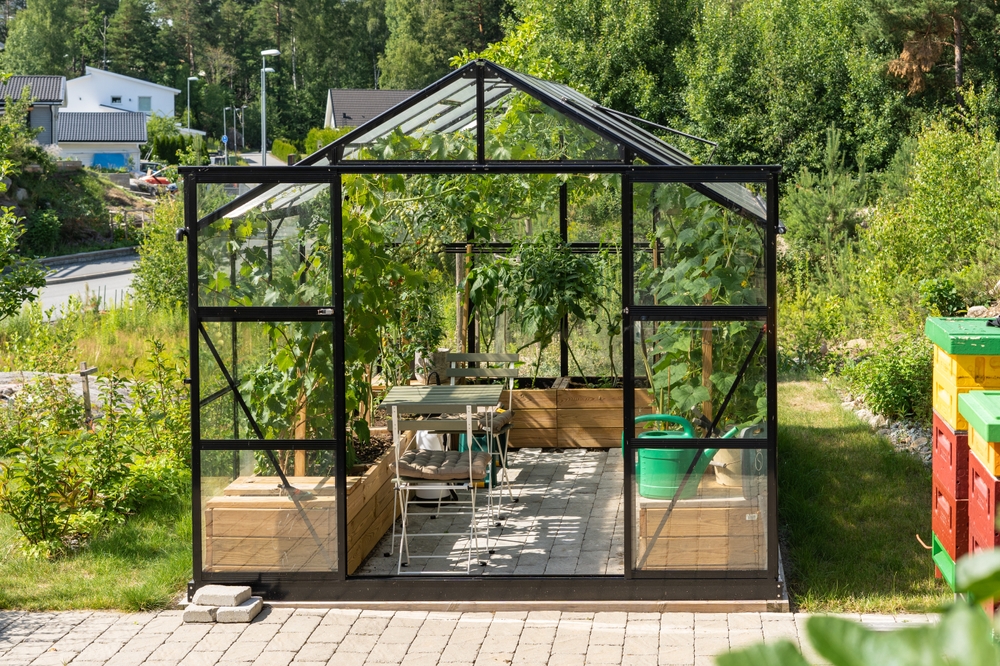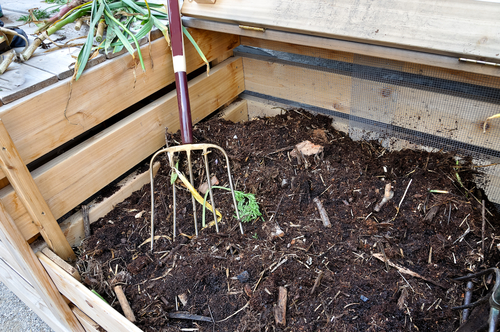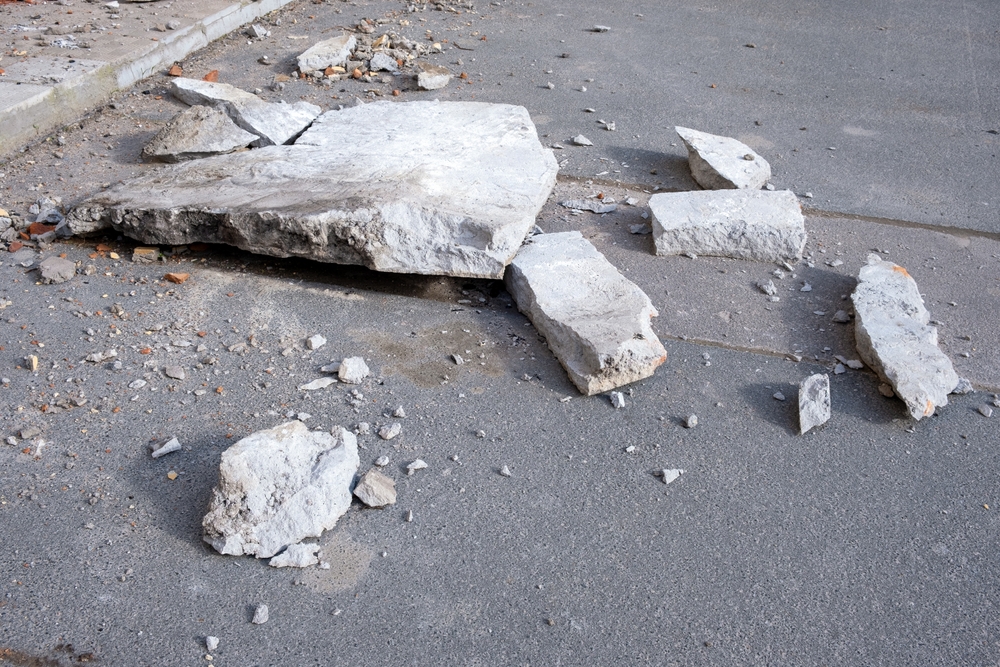March 28, 2024 - Benjamin Ehinger
Garden Waste Disposal: Efficient Methods for Eco-Friendly Management
CALL NOW 844-762-8449
Garden waste disposal is an essential aspect of maintaining your outdoor spaces while also considering the health of our planet. Excess yard waste, including leaves, branches, and grass clippings, requires proper management to prevent it from ending up in landfills where organic matter can contribute to methane emissions. Through eco-friendly methods of disposal, you not only keep your garden neat, but you also participate in preserving the environment.
One convenient option you have is using a yard waste dumpster from Waste Removal USA, which streamlines the collection and composting of natural waste. This route ensures that yard waste is disposed of in a manner that can benefit the ecological system by turning it back into nutrient-rich soil. Moreover, understanding the different legislations and community solutions in place for garden waste disposal is crucial for compliance and maximizing eco-friendly initiatives your community might offer.
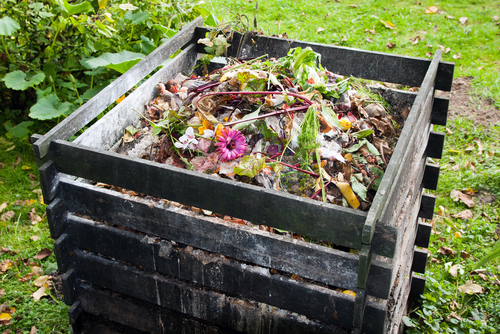 When dealing with garden waste, eco-friendly disposal practices such as grasscycling and mulching, and using waste as fertilizer, are not only beneficial for your garden but also for the environment. By efficiently recycling garden trimmings, you can enhance your soil quality and reduce waste.
When dealing with garden waste, eco-friendly disposal practices such as grasscycling and mulching, and using waste as fertilizer, are not only beneficial for your garden but also for the environment. By efficiently recycling garden trimmings, you can enhance your soil quality and reduce waste.
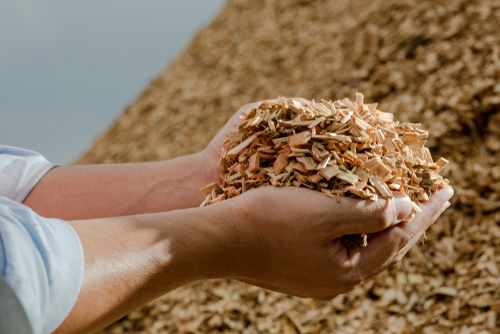 Instead of consigning your garden waste to landfills, explore services such as wood chipping and junk removal that can efficiently process your yard debris.
Instead of consigning your garden waste to landfills, explore services such as wood chipping and junk removal that can efficiently process your yard debris.
Key Takeaways
- Proper garden waste disposal contributes to ecological health.
- Yard waste dumpsters are a convenient tool for eco-friendly disposal.
- It’s essential to stay informed about disposal legislation and community programs.
Understanding Garden Waste
Garden waste encompasses a variety of organic materials that require proper handling. Your approach to disposal can significantly impact the health of your garden and the environment.Types of Garden Waste
- Leaves and Grass Clippings: These are the most common types of garden waste. Leaves fall seasonally, while grass clippings are produced with each mow. Both can be beneficial if managed properly.
- Pruning and Yard Debris: Regular maintenance like pruning generates branches and other debris. This organic matter can range in size and composition, but it’s important to handle it correctly to prevent garden clutter.
- Soil and Plants: Old soil and uprooted plants are also garden wastes. They may contain nutrients useful for composting or pose a risk if they hold disease or pests.
- Organic Debris: This encompasses all forms of biodegradable waste, including old mulch, which can be recycled back into the garden ecosystem.
Benefits of Proper Disposal
- Compost and Nutrients: Turning your organic debris, such as leaves and grass clippings, into compost is a way to enrich your soil naturally. The decomposed matter replenishes essential nutrients for plant growth.
- Mulch: By using certain types of yard debris, like smaller branches or pruning remnants, you can create a protective mulch layer. This not only retains soil moisture but also prevents weed growth, reducing garden maintenance needs.
Methods of Disposal
Proper garden waste disposal is essential for maintaining a sustainable ecosystem in your backyard. Discarding yard waste responsibly can reward you with a healthy garden and contribute to a greener environment.Composting at Home
Composting at home allows you to transform your garden waste into nutrient-rich soil amendments. By creating a compost pile or utilizing a compost bin, you can recycle organic materials like leaves, grass clippings, and even food scraps. Remember that the key to a successful compost pile is maintaining a balance between greens (nitrogen-rich materials) and browns (carbon-rich materials). Grasscycling, the practice of leaving grass clippings on the lawn after mowing, also enriches your soil without the need for a compost pile.Curbside Pickup Options
Many municipalities offer curbside yard waste pickup services, making disposal convenient. Check local guidelines, as they typically require yard waste to be placed in biodegradable bags or specific bins for collection. For larger projects, consider a small yard waste dumpster rental from Waste Removal USA to handle significant amounts of debris efficiently.Recycling Yard Waste
Recycling yard waste extends beyond turning it into compost. Mulching is a practical approach to recycle by reusing leaves and small twigs to enrich and protect garden soil. Additionally, some areas have dedicated green waste facilities where you can drop off yard waste, ensuring it’s processed responsibly. Always look for a reputable yard waste removal service that adheres to environmental guidelines to sustainably manage your garden’s organic matter.Eco-Friendly Disposal Practices
 When dealing with garden waste, eco-friendly disposal practices such as grasscycling and mulching, and using waste as fertilizer, are not only beneficial for your garden but also for the environment. By efficiently recycling garden trimmings, you can enhance your soil quality and reduce waste.
When dealing with garden waste, eco-friendly disposal practices such as grasscycling and mulching, and using waste as fertilizer, are not only beneficial for your garden but also for the environment. By efficiently recycling garden trimmings, you can enhance your soil quality and reduce waste.
Grasscycling and Mulching
Grasscycling refers to leaving grass clippings on the lawn after mowing. This simple technique saves you time and effort in cleaning up, and as the clippings decompose, they return valuable nutrients to the soil. Grass clippings can provide up to 25% of your lawn’s fertilizer needs, reducing the need for additional fertilizer. Mulching involves spreading a layer of material, such as shredded leaves, straw, or wood chips over the soil. The benefits of mulch include preserving soil moisture, regulating soil temperature, and suppressing weed growth. Together, grasscycling and mulching are efficient methods to repurpose garden waste and maintain a healthy lawn.Using Waste as Fertilizer
Your garden waste, including weeds, leaves, and plant trimmings, can be transformed into organic fertilizer through the process of composting. By composting, you create a nutrient-rich humus that naturally enriches your soil, leading to healthier plant growth. To compost, layer green waste, like grass clippings and vegetable scraps, with brown waste, such as dried leaves and twigs, in a compost bin. Over time, with moisture and occasional aerating, this mixture breaks down into compost that can be used to bolster your soil’s health. By using your own garden waste as fertilizer, not only do you cut down on waste but also provide your plants with essential nutrients.Legislation and Community Solutions
When addressing garden waste disposal, understanding local regulations and leveraging community waste management programs are crucial. These measures ensure that your yard waste collection and disposal practices comply with laws and support eco-friendly recycling efforts.Local Regulations
Local regulations govern how you should handle organic waste. They define parameters for yard waste collection, including what qualifies as organic and which items are recyclable. For instance, some areas mandate that you must separate leaves and grass clippings for municipal trash services. It’s essential to check with your local waste management authority for specific guidelines that may affect you. This could include designated collection days or restrictions on the type of yard waste accepted.- Yard Waste Disposal: Must adhere to municipal guidelines.
- Recyclable Materials: Often must be separated from regular trash.
Community Waste Management Programs
Community initiatives play a significant role in the recycling and eco-friendly disposal of garden waste. These programs provide resources and sometimes even collection sites where you can take your yard waste. They aim to transform this waste into beneficial compost, which can then be used to enrich local soils and support community gardens.- Collection Sites: Places where you can bring garden waste for composting.
- Education and Outreach: Programs designed to inform residents about best practices for eco-friendly waste disposal.
Alternatives to Landfill Disposal
 Instead of consigning your garden waste to landfills, explore services such as wood chipping and junk removal that can efficiently process your yard debris.
Instead of consigning your garden waste to landfills, explore services such as wood chipping and junk removal that can efficiently process your yard debris.
Wood Chipping and Shredding Services
When you have large piles of branches and stumps, wood chipping provides a sustainable solution. You can rent a wood chipper or employ a service to turn solid waste into usable mulch or wood chips. This method is not only efficient for managing garden waste but also repurposes the material for landscaping or composting purposes.Junk Removal Services
For assorted garden waste that can’t be chipped, junk removal services offer an alternative to landfill disposal. Whether it’s old garden furniture or non-compostable waste, a junk removal service is a convenient choice. These services often include a trash collection service that sorts and disposes of yard waste responsibly, aligning with waste management service guidelines to reduce environmental impact. However, it’s often much cheaper and gives you more time to work when you simply rent a dumpster for garden waste disposal.Safety and Environmental Concerns
Disposing of garden waste improperly can pose safety risks and harm the environment. You have options to manage yard waste responsibly, ensuring you protect your health and the planet’s wellbeing.Hazards of Burning Yard Waste
Burning yard waste might seem like a quick fix, but it’s not without dangers. It can create air pollutants such as particulate matter, which can exacerbate respiratory issues and reduce visibility, causing safety hazards. Beyond the immediate risk of fire spread, there’s the release of methane and carbon dioxide, potent greenhouse gases that contribute to climate change. Burning also impacts the temperature of the surrounding area, presenting both a fire hazard and a thermal risk to local wildlife.Impact on Air and Soil Quality
When you discard garden waste correctly, you contribute to cleaner air and soil quality. Composting, rather than burning, turns waste into a resource without polluting the atmosphere with harmful gases. Compost enriches the soil, sequestering carbon and supporting plant growth. In contrast, burning yard waste can result in the loss of valuable nutrients and structure of the soil, compromising its ability to support healthy plant life. Engaging in safer disposal methods, like composting or using municipal green waste services, is crucial for protecting your health and that of the environment.Cost-Effective Disposal Options
Identifying cost-effective disposal options for your garden waste can lead to substantial savings and efficient waste management practices. This section covers the assessment of disposal costs and introduces strategies for managing garden waste on your own.Assessing Disposal Costs
To manage your garden waste cost-effectively, you must first understand the pricing and service choices. Pricing for services like junk removal or a local dumpster rental varies. For instance, using a pickup truck for waste hauling, three truckloads may cost around $300 on average. In contrast, a roll-off dumpster rental might cost $299 and save you the hassle. Remember, these prices can fluctuate based on location, pickup availability, and dumpster size.DIY Waste Management Strategies
Employ DIY strategies to minimize garden waste disposal costs:- Composting: Transform your garden waste into a valuable resource for soil improvement.
- Mulching: Use leaves and small branches as mulch to suppress weeds and retain soil moisture.
- Local Disposal Programs: Enquire about community disposal programs, which may offer a more cost-effective option than private services.
Advanced Topics in Yard Waste Disposal
When managing your garden’s refuse, it’s essential to consider advanced disposal methods that benefit both your soil and the environment. Cutting-edge techniques in organic waste processing and understanding the long-term environmental impacts can guide you towards more sustainable practices.Innovations in Organic Waste Processing
Composting emerges as a standout innovation, transforming your yard’s green and brown material into a nutrient-rich fertilizer. With modern composting methods, such as in-vessel composting, you accelerate decomposition, control odors, and can handle larger quantities, including waste from large trees. This technique ensures your sod and plants benefit from the recycled nutrients while reducing landfill dependency.- Green Material: Grass clippings, plant trimmings
- Brown Material: Dry leaves, branches, and twigs
Long-Term Environmental Effects
Your yard waste disposal decisions have lasting environmental repercussions. Excessive yard waste in landfills generates methane, a potent greenhouse gas, contributing to climate change. By adopting effective waste processing methods like composting, you not only enrich your soil but also curb greenhouse gas emissions. Moreover, repurposing organic waste as compost means that over time, you can reduce the dependence on synthetic fertilizers, which are often energy-intensive to produce and carry environmental risks. Sod and soil quality benefit tremendously when infused with compost, leading to a robust garden ecosystem. This improved soil structure increases water retention, reducing runoff and soil erosion—key factors in sustaining a healthy environment. Advanced yard waste disposal practices combine immediate gardening benefits with long-term environmental wellbeing, reinforcing the importance of considering our ecological footprint in routine garden care.Frequently Asked Questions
Navigating the complexities of garden waste disposal can be simplified by understanding common concerns and the available solutions. Here, key questions are addressed to guide you in managing your garden refuse effectively.How can I dispose of tree branches and large yard waste?
You can dispose of large yard waste, such as tree branches, by contacting your local waste collection service or renting a yard waste dumpster. Some municipalities offer curbside pickup for large debris, especially after storms.Are there cost-effective methods for removing garden refuse?
Yes, composting is a cost-effective and eco-friendly method for disposing of garden refuse. Composting turns your scraps into valuable fertilizer for your garden. You may also check with your local government for subsidized disposal programs.What are the local regulations for garden waste removal?
Local regulations for garden waste removal vary, but typically involve restrictions on the type of waste and the disposal methods. Contact your local waste management authority or refer to their guidelines online, like those offered by the Ohio EPA, for specific information.What types of garden waste are accepted at waste disposal facilities?
Waste disposal facilities typically accept garden waste such as leaves, grass clippings, branches, and plants. Certain materials like treated wood may not be accepted. It’s important to verify the accepted types of waste by visiting your waste facility’s website like the City of Garden Grove’s organics recycling program.How do I find my nearest garden waste disposal site?
To locate your nearest garden waste disposal site, search online for local facilities or contact your city’s public works department. Your local government website, like CalRecycle, may provide a directory of drop-off locations and services.What are the best practices for sustainable garden waste management?
Sustainable garden waste management includes practices like composting at home, proper sorting of green waste, and using garden cuttings as mulch. Participating in community green waste programs and following the guidelines set by agencies like the United States Environmental Protection Agency can also contribute to environmentally friendly disposal.RECENT BLOGS
Our Reviews
Glenda Lanier Prowell
1721758635
I have ordered an 11 yard dumpster to be delivered to my house.Lonier was extremely helpful and answered all my questions. The rate was very reasonable.
Cedric Smikle
1721660395
Amber was extremely professional and courteous. She answered all of my questions and even some that I didn’t know I needed to ask.
Cait Kaider
1721243051
I highly recommend Waste Removal USA for their responsiveness and how the staff work hard to provide exceptional customer service. They have done well by us and our clients. Thank you!
Easom Family
1721223306
Louiner Pierre-Louis Is awesome! Did a great job. Will definitely be using this same company for all my dumpster needs because of his awesome customer service! Thank you!!!
tabitha Vazquez
1720539988
Wonderful and fast customer service!
LATEST BLOGS
